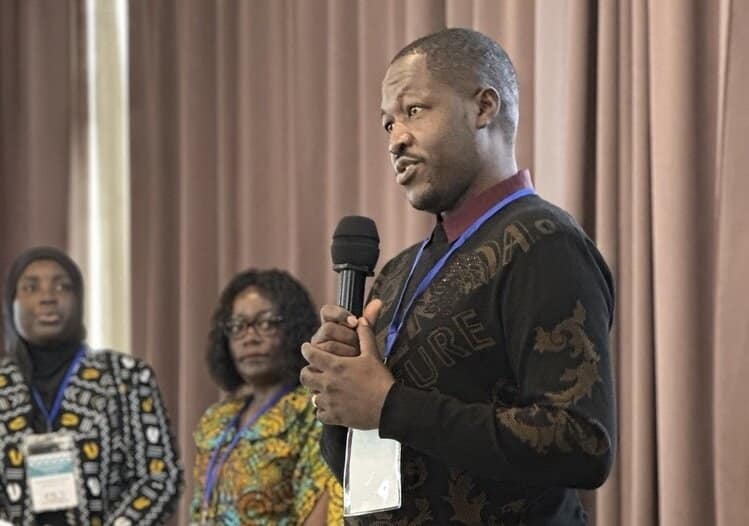Without addressing the deeply rooted social and gender norms that influence family planning behavior, simply focusing on creating demand for sexual and reproductive health services will not lead to sustained change.
Armed with this insight, last year, the UK government began funding the Women’s Integrated Sexual Health (WISH 2) initiative, which is led by the International Planned Parenthood Federation (IPPF) and supported by consortium partners, including the Johns Hopkins Center for Communication Programs, and made shifting social and gender norms an integral component of the project.
Working in Ethiopia, Somalia, Burundi, Sudan, South Sudan, Madagascar, and Zambia, the initiative is striving to address the social barriers that prevent marginalized and vulnerable communities – especially those in fragile and conflict-affected settings – from accessing essential sexual and reproductive services they have the right to. As a global social and behavior change (SBC) thought leader, CCP aims to help countries better understand SBC approaches and how they can be used to shift harmful norms that stand as barriers to sexual and reproductive health rights and enhance the effectiveness of family planning programs.
“These efforts are aimed at creating an enabling environment for sexual and reproductive health that goes beyond simply offering services,” says Uttara Bharath Kumar, who leads CCP’s work on WISH 2. “It focuses on transforming the cultural and societal attitudes that shape behavior, making services more accessible and effective for people on the margins.”
To help achieve the WISH 2 project’s goal of increasing the number of years couples use family planning, the project focuses on several key actions. These include working closely with community and religious leaders to support young couples’ use of family planning, training healthcare providers to offer more understanding and sensitive counseling, especially for young people and those with disabilities, and improving the quality of counseling and communication tools used at all service levels.
To that end, in March, CCP organized and led a Social and Behavior Change (SBC) Capacity Strengthening workshop in Nairobi, Kenya, in what facilitators called a pivotal moment in the journey toward transforming sexual and reproductive health and rights in Eastern and Southern Africa. Forty government and other service delivery representatives gathered for what became not just a learning experience, but a collaborative effort designed to ignite the spark that will lead to real, lasting change in communities.
Before the workshop, invitees completed four self-paced, online certificate courses on CCP’s SBC Learning Central site, including SBC 101: An Introduction; Understanding Social and Gender Norms; Engaging Communities for RH/FP; and Know, Care, Do: Engaging Men and Boys in FP. The courses are offered in English and French.
Through the self-paced courses and the workshop, participants familiarized themselves with SBC concepts and began to understand how these principles could be integrated into their service delivery models to drive more effective change. Many of the participants involved in WISH 2 were new to SBC, and the online courses served as a primer, preparing them for a more in-depth discussion during the workshop.
Zambia’s Constance Simooya Musenge, chief health promotion officer at the Ministry of Health, was one of the attendees. She was intrigued by the conversations about how to systematically engage men and boys in family planning, making it more inclusive and accepted. She was also looking for better ways to engage youth in family planning in communities where doing so is considered taboo.
After the workshop, Musenge said that a youth wellness approach might work where other ideas – such as youth corners at family planning clinics – haven’t succeeded.
“We should do something different,” she says. “We should better segment our audiences. We should be the change we want to see. We should listen to the communities, and we now have a shared vision. With the resources that we are given, how can we make a difference in our lives and the lives of our people? Now resources are very meager, but we can still make a difference at every level.”
One of the benefits of a workshop like this is the perspective – and lessons learned – from other countries facing similar circumstances.
“I feel I [now] have a lot of approaches on how to carry out social and behavior change and communication in the Republic of South Sudan now,” says Pitia Jacob Alesia, an SBC officer with the Reproductive Health Association of South Sudan. “We have all gained a lot of information from this workshop. I have personally learned from each of the other countries as well.”
The UK’s Foreign, Commonwealth & Development Office (FCDO) is supporting the five-year WISH 2 project. Alongside IPPF and CCP, other partners include the International Rescue Committee (IRC), Options and Ipas. The goal is to help at least 10.4 million family planning users and avert 15,100 maternal deaths in Africa between 2024 and 2029.





